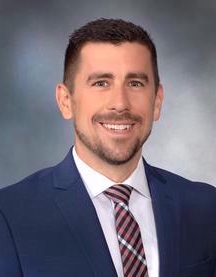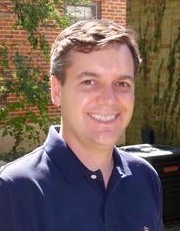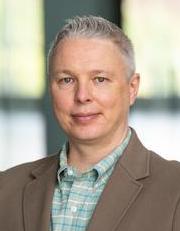In 2007, UC was the recipient of a substantial monetary gift to attract top talent and establish a competitive space exploration program of research at UC. This gift has supported two endowed chairs - the Thomas Jefferson Endowed Chair for Discovery and the Alan B. Shepard Endowed Chair for Exploration, who have their own innovative research programs - and supports student scholarships and fellowships through the
Space Research Institute. In addition, the Office of Research has been using this gift to invest in our research infrastructure and capabilities - all to support broader efforts across our institution to be a leader in space exploration research.
Read more to find out more about the most recent investments in our faculty to expand our space research infrastructure.
Daniel Cuppoletti

Assistant Professor
Aerospace Engineering
College of Engineering and Applied Science
Shared Modern Experimental Facilities for Hypersonic Propulsion and Aeroacoustics Research
Daniel Cuppoletti has been awarded $1,100,000 to support the Digital Futures Advanced Mobility Propulsion Lab personnel and invest in new infrastructure, including a new hypersonic propulsion facility and upgrades to the Digital Futures anechoic chamber.
“The proposed Research 2030 infrastructure investment involves two high-priority research areas for the Aerospace industry: Hypersonic Propulsion and Aeroacoustics of Electric Aircraft. These two areas have seen significant research funding growth and represent rapid and cutting-edge technology development areas in the Aerospace field. The UC Aerospace Engineering and Engineering Mechanics (AEEM) department has expertise to conduct impactful research in both areas, but the poor condition and limited infrastructure compared to competing peer institutions have been a barrier to proposal success.”
Andy Czaja

Associate Professor
Geosciences
College of Arts and Sciences
Center for Astrobiology and Ancient Life (CABAL)
Prof. Czaja has been awarded $200,000 to support the creation of the Center for Astrobiology and Ancient Life (CABAL).
“Leveraging UC’s strong heritage in aerospace, engineering, and geosciences, exemplified by distinguished faculty such as Neil Armstrong, I propose to build a Center of Excellence, focusing on astrobiology and the study of ancient terrestrial and extraterrestrial life (the Center for Astrobiology and Ancient Life, or CABAL). The CABAL will place UC at the forefront of astrobiological research and education, fostering cutting-edge research and high-profile collaborations (e.g., NASA), while attracting precious Martian samples that are planned to be returned to Earth in2033, as well as samples from future missions. The CABAL will also drive investigations into the earliest life on Earth, enhancing our understanding of the history of life throughout the solar system.”
Michael Riley

Professor
Rehabilitation Sciences
College of Allied Health Sciences
Instrumented, Split-Belt Treadmill for Investigating the Neuromechanics of Locomotor Adaptation to Improve Astronaut Safety and Performance
Michael Riley has been awarded $190,000 for an instrumented, split-belt treadmill for the investigation of the neuromechanics of locomotor adaptation to improve astronaut safety and performance.
“Long-term space flight and gravitational force transitions impair gait and balance, producing substantial locomotor deficits that are known to last for days after returning to Earth. These deficits could have severely detrimental impacts on crew safety and performance during future lunar and Mars missions, especially during extravehicular activities or egress (planned or emergency) after landing where a mishap like a fall could have life or death consequences. There is a critical need for counter measures to prevent such adverse events by promoting sensorimotor adaptation to improve locomotor control. We propose to address this need through research that aims to identify neural mechanisms for locomotor adaptation. This knowledge will be crucial to develop effective counter measures to ensure crew safety and performance in future space exploration missions.”